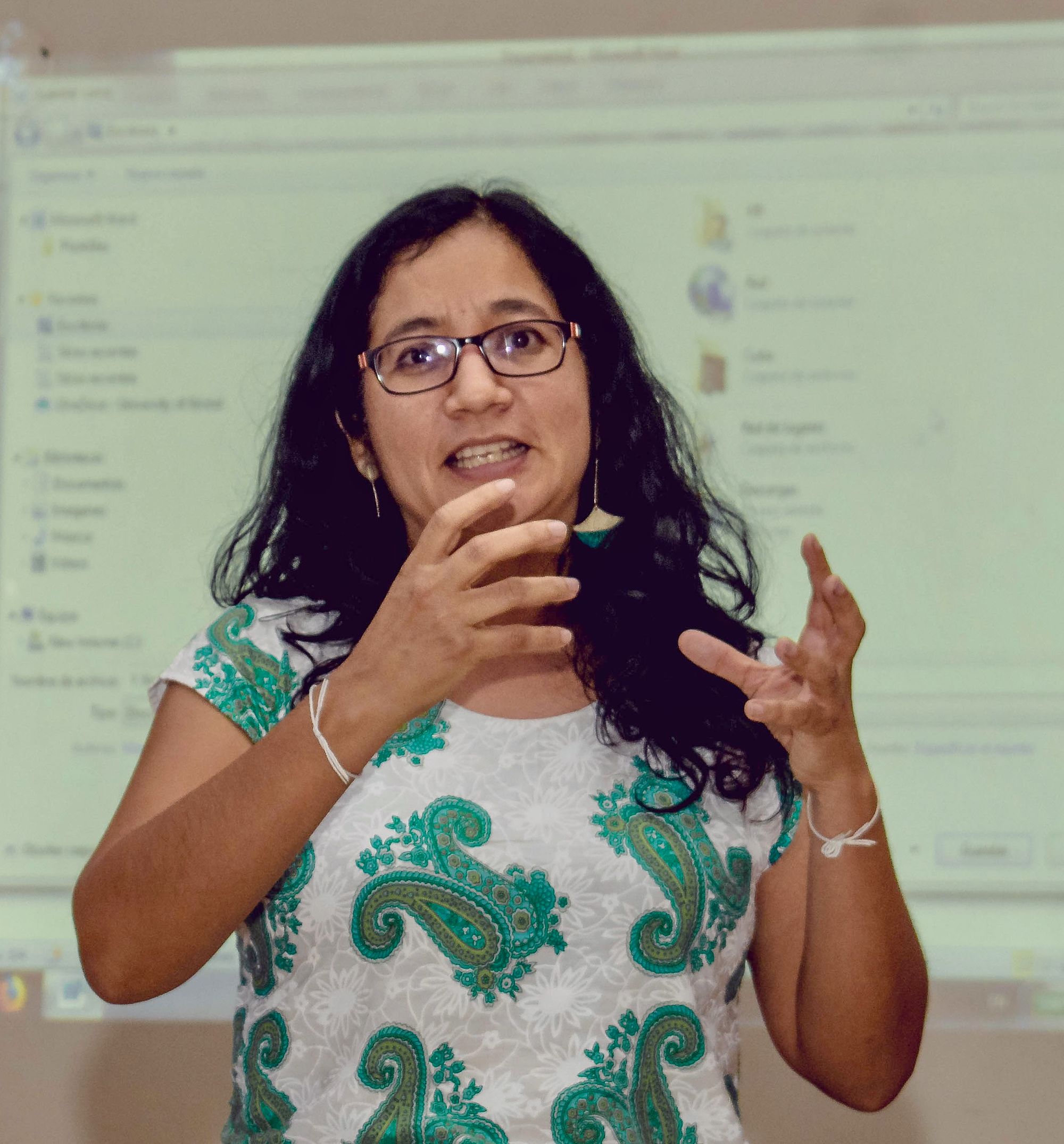By Sarah Henderson, Fourth Year French, Spanish and Portuguese
In honour of International Women’s Day, Epigram sat down with Goya Wilson Vasquez, Senior Research Associate and Lecturer in the Department of Hispanic, Portuguese and Latin American Studies, to discuss her views on the challenges faced by women in academia, how feminism influences her research, and what advice she has for women pursuing a career in academia.
Goya came to Bristol to study for her PhD (in Education), and has since been working on projects focused on memory and political violence in Latin America. Explaining how women play a central role in her research, she said, 'We always make sure that we have groups that come from a very feminist standpoint, like women’s organisations, such as La Ruta Pacífica in Colombia or Trenzar in Peru.'
Goya highlighted the importance of engaging with feminist groups when conducting research on the post-conflict discourse, explaining that not doing so risks losing women’s voices. 'In mixed groups the women’s voice can be diluted,' she said. 'It is always important for us to work with at least one feminist group, one which doesn’t just work with women but that explicitly defines itself as feminist.'

When asked about the barriers that women in academia face, Goya was reflective before responding. 'If you were to ask a man this question, they would probably be happy to list off four barriers. If you ask this to a woman, she will search for information to fully back up her opinion before saying anything.' And that's not about confidence but how some feel being an academic entitles them to talk for other people.
'Academia not only reproduces the structural barriers, but also reinforces them; it values very white, male perspectives,' she said. There is a noticeable discord in the perception of female academics compared to male ones, illustrated in the student evaluations. 'Women are evaluated much more harshly than men. We are more likely to doubt what women are saying than what men are saying.'
Bringing in Memories from the Margins: 4 organisations from 6 territories of Colombia will be in Bristol for a week of public events starting next MONDAY 20th March! https://t.co/95erGZUNi7 pic.twitter.com/6PMikqopAQ
— goya (@goyawilson) March 14, 2023
Goya also stressed that precarious contracts, something the University of Bristol has been heavily criticised for, disproportionately affects women. 'There are many more women in precarious positions than men, and I don’t think the University is doing enough to combat this.
'The structure of the University focuses on, and rewards, individual work rather than teamwork. But most of the bigger projects, which rely on such teamwork, have women working on them who do not receive due recognition or secure contracts. Women also carry out a lot of unpaid labour, taking on "invisibilized" tasks.'
Considering how the University can address these inequalities, Goya said that 'the university needs to be actively willing to advance women in academia, rather than have this illusion that everyone is in the same position. We need to directly consider women, women of colour particularly. If the University decides to actually support that, I think we will make more progress. There is an image of the university that doesn’t reflect what is actually happening, not only with gender but also with race.'
Women in Academia: In conversation with Leighan Renaud
‘Age is not a barrier to university’: In conversation with Eulinda Antonette Clarke-Akalanne
Goya ended with some wise words for women wanting to pursue a career in academia. 'Follow what you are passionate about or find what you’re passionate about. Fight for your space. Find a community around you that shares that passion and that helps you shine, that supports each other, that makes you laugh. I think we need to laugh more!'
Featured image: Epigram / Imogen Horton
Which women in academia most inspire you?






